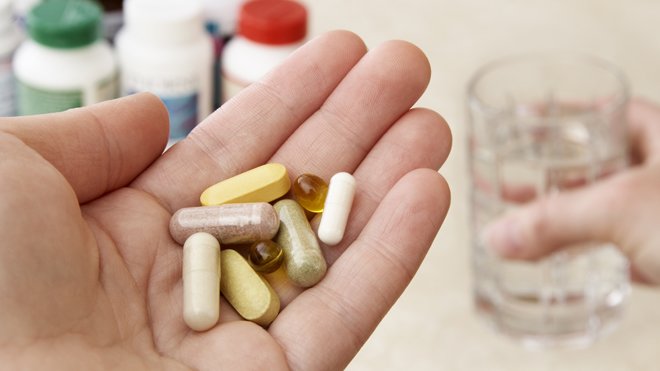
Every day, I see new patients in my office who are either pregnant or thinking of getting pregnant, and after I go through my normal Q&A, I’m always shocked by the answers I get to this question: “What medications are you taking?”
Typically, I’m interested in medications that relate to some underlying medical condition such as diabetes, hypertension, or heart disease. But after going through some of their answers, I am always shocked to see the carry-on bags many patients bring along to show me all the supplements that they’re taking as well. Sometimes the number is in the dozens.
I see everything from vitamins and minerals to herbal “cures,” that these individuals have somehow fallen prey to Googling them, watching a TV commercial or program, or perhaps even being referred by a health care provider who led them to believe these supplements are the key to longevity.

4 Most Healthy Vegetables for Women
Do supplements make you healthy?
Let me give it to you straight: Vitamins and dietary supplements are not going to make you healthier.
As a matter of fact, a recent large-scale study which was presented at the American Association for Cancer Research (AACR) annual meeting found that not only do over-the-counter supplements lack the potential for preventing cancer but in some cases, taking more than the daily recommended allowance of certain supplements may actually increase your risk for the deadly disease.
For the study, researchers analyzed 20 years of published studies on dietary supplements and cancer risk. They looked at over 300,000 patients who took either a dietary supplement or a placebo over a 10-year period and concluded that taking more than the recommended amount of beta-carotene, known for improving immunity and protecting vision, increased the risk for lung cancer and heart disease by nearly 20 percent. An increased risk of developing prostate cancer was observed in men who took vitamin E supplements, and folic acid increased the number of colon polyps and breast cancer risk in some patients.
Not all supplements are unnecessary
Now, this is not to say that for certain medical conditions vitamins and these and other dietary supplements may not be necessary. For example, folic acid in pregnancy is very important because it can help prevent birth defects in your baby’s brain and spinal cord. Your need for certain nutrients like folic acid, calcium, and iron actually increases when you’re pregnant, so taking a prenatal vitamin every day that contains 400 micrograms can help cover any nutritional gaps in your diet.
But generally speaking, life is very simple: If you eat a balanced diet, you will provide your body with all the nutrition and vitamins it needs to function. Yes, there are medical conditions that require people to take vitamin and mineral supplements, such as gastrointestinal abnormalities, iron-deficiency anemia, pregnancy, and metabolic conditions. But for the average person, you may actually be putting your life in danger by relying on these products.

The Dukan Diet: Stay Safe when Dieting
Conclusion
So here’s the bottom line: Unless you need to take them for a medical condition as prescribed by your doctor, every time you feel the need to buy a dietary supplement, take that money and donate it to a non-profit medical research group. There are plenty out there looking for help.
